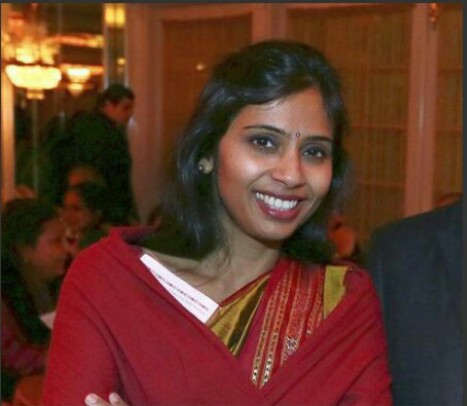
Indian Diplomat Devyani Khobragade
The snafu over Indian diplomat Devyani Khobragade’s employment of household servant Sangeeta Richard has subsided. But the incident raises a strategic issue, which goes beyond the question of whether the U.S. treats India, in the words of the Economist, like a domestic servant. There is a tension between developed American freedom and the views of freedom that shape aspirations in developing societies.
America’s freedom rejects the claims of traditionally-defined status. The nation founded itself on a demand that principles of liberalism trump any authority, even the relatively liberal government of contemporary Britain. The American Revolution itself was fueled by resentment of contemporary elites. Prosecutor Preet Bharara, asserting that the”sole motivation in this case … is to uphold the rule of law .. and hold accountable anyone who breaks the law — no matter what their society status and no matter how powerful, rich or connected they are,” cited exactly this spirit of principle over status.
For her part, Khobragade, who reportedly told a State Department official that “You have lost a good friend … In return, you get a maid …” precisely asserts the claims of status. And Americans rather enjoy seeing a well-off person of high status undergo the same arrest procedures as any other suspect. If the procedures are sloppy and demeaning, so much the better. Special treatment for the rich or well-connected would be all the more unfair.
What is new to us is that different societies develop along different paths to their freedom. Ms. Khobragade comes from India’s lower castes. Her attainment of higher status, albeit marked by traditional criteria of wealth, title and style, connotes a liberation for her – and others of lower castes. If we disrespect her status, we may disparage her liberation, and India’s development toward freedom. Development may be incomplete, but progress it may well be. If our view that social status alone should not command respect does not compute for many Indians, it may be that upward mobility for lower-status people must come first. In some cases the possibility of equality must exist before people can see the principle. If only step one has occurred, it marks progress even though step two remains untaken.
Here lies the tension between American freedom and others’ aspirations. Inured as we are to strict adherence to the principles of freedom and equality, we take action that often looks like rejection of others’ progress. We hold developing societies to our post-modern notions of human rights, environmental protection, and open markets. We judge those societies on what we see as their shortfalls to normal moral practice. But if we reject progress toward freedom because it has not yet reached our own expectations, we discourage freedom’s propagation.
What does this mean in practice? It may be that the Khobragade incident was inevitable; it may be that she violated the law. But we can and must change the context in which such snafus occur. Of course, we need to improve the conduct of all our civic institutions, for ourselves primarily, but also to show our fidelity to the principles of freedom, which define American nationality. We should govern our foreign policy by an overarching principle: to treat nations developing in freedom as prospective partners rather than potential transgressors of our claims for pet moral causes, market fairness, vested interests, and environmental protection. And when our claims must override this principle, the reasons must be patently just and universal, for instance to pursue the 9/11 terrorists.
Failing this change of context, our officials’ conduct may be seen as belying our declamation of democracy’s importance. The country is a democracy yet we treat an Indian diplomat in a hostile manner. Indians, and others, may see hypocrisy in American declamations for democracy, advanced only to serve our pursuit of wealth and power. In that case they will be especially grating; many, like one Indian, will call America “too big for its britches.”
The U.S., and U.S. policy, cannot let the tensions between our views of freedom and others’ current attainments lead developing societies to cynicism about America’s espousal of freedom, or about liberalization itself. While we cannot defer to injustice, we also must provide the proper context to our interactions with liberalizing societies, or diplomatic snafus will escalate.